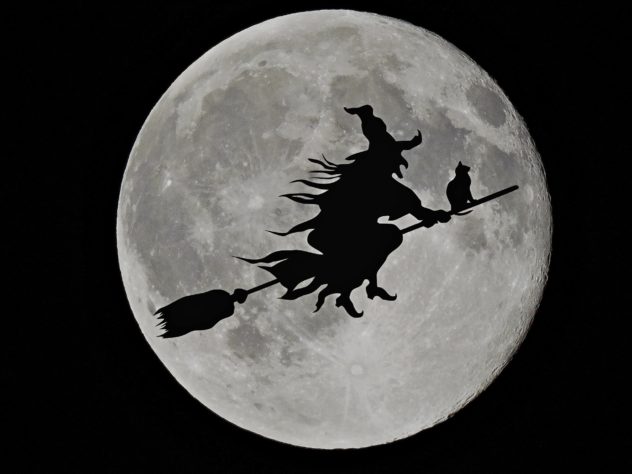
Onwards with the Halloween thematic. 🙂
A witch, warlock, sorcerer/sorceress… plus many local names in many languages all mark one belief – a belief in a human being with supernatural powers.
These powers are not necessarily considered evil, or used for evil, by all; but unfortunately, most if not all beliefs know a dualism of good vs bad witch, and this is where it gets complicated, if it hadn’t been thus far.
The belief in evil done by others via some unearthly power is very difficult to defeat, as there are always “proofs” of the veracity of the existence and the power of witches, anchored in a range of fallacies, and supported by the worst part – “we all know that”.
You are probably sick to death of me repeating about aura of factuality, but here’s the problem – aura of factuality, as an integral part of human interactions, is a very strong and heavily present influence on how we behave and think, and that is WHY it keeps popping up (in a way, if it didn’t, you would know that there are flaws within the theory, which is a brilliant example of how you can cross-examine any theory in practice, and when a theory can become useful enough to be actively used this way).
The history of witchcraft is a melange of religions, demonologies, maladaptations, patho-psychology and paranoia. This shows wonderfully with the Azande, where witchcraft is both inborn and definite in everyone, except the leaders, and while the extra witchy witches (male or female) seem to possess an extra organ of sorts, the power runs through everyone and is generally deemed to be unconscious, and the person almost always unequivocally guilty. Trial by poison used to be involved heavily in the Azande culture, and while it has apparently been abolished (this had to do a lot with the colonial past of the region), the belief is still alive and other punishments and witch trials seem to still exist. As the Azande believe that without witches, everyone would live forever, you can see the problem emerging right there… a culture that is heavily paranoid and set on scapegoating, which can be a part of grieving process with anyone.
Moving to our Western world, the active belief in witches remains a part of the more extreme members of Judaic religion, as well as the alternative religions such as Wicca, Druidism and Paganism, where it is a predominantly benign, but integral part of the religion itself.
Off the religious track, witches and their magical counterparts have made it into music (e.g. Black Sabbath), art, books, theatre and film. Harry Potter and the Hogwarts school of witches and wizards by Rowling has become an international franchise; Pratchett’s hedge withes and the wizards of the Unseen University may not have made it that big, but they are a staple with Pratchett’s readers, and brilliant representation of rural and city life.
In Merlin series, magic is presented in the usual duality, with a stronger leaning towards evil, but that has not stopped countless fanfiction authors delving into the thematic in ways that far surpass the series itself.
The theme of witchcraft is immense and vast. If you are interested in studying it, I suggest a LOT of reading of both modern and historical sources, as biases are present both in the past works and present, and a good picture can only be made by knowing and understanding both. Additionally, a good knowledge of human psychology is crucial in this kind of study (when isn’t it? 😉 ), as is the knowledge of languages, as you may have to decipher writing several centuries old.
It is, however, a fabulous topic; knowing what motivates beliefs and fears of people means that, as anthropologists, we can predict and hopefully prevent tragedies that still happen due to prevalence of belief in rigid societies. And this is where the reward lies for all that reading – in knowing that you have worked through sickening topics, through immense amount of writing, and at the of it all, you can use it as a shield for those who would otherwise have no hope in their lives.
